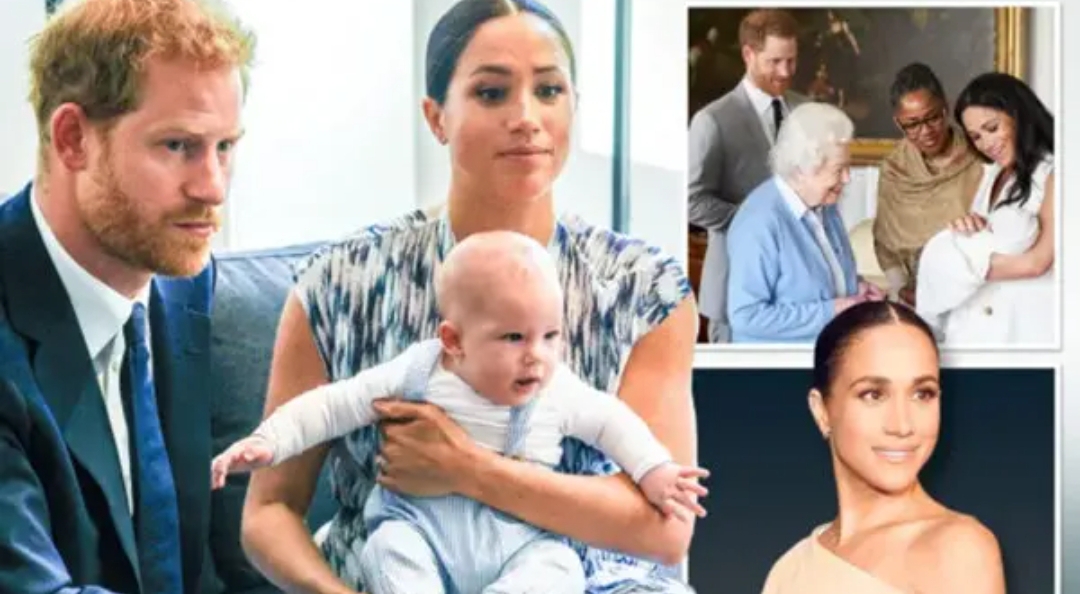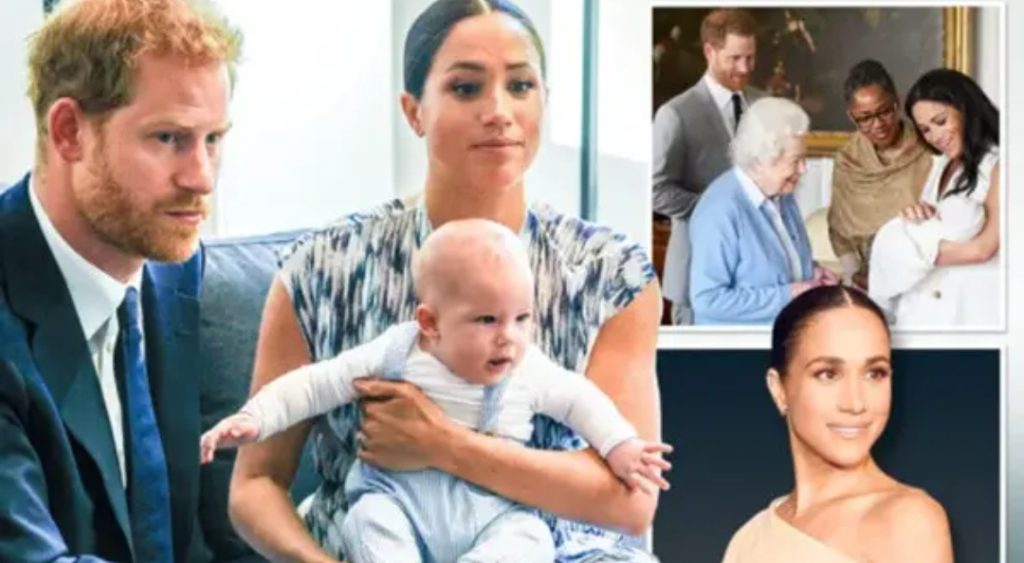
Meghan Markle dropped a bombshell revelation during a tell-all interview with Oprah Winfrey. The Duchess accused unnamed members of the royal family of making racist remarks about her son, Archie. The revelation, which came to light in March 2021, sent shockwaves through the global media, prompting a reevaluation of the monarchy’s traditions and attitudes towards race.

During the candid interview, Meghan Markle disclosed that there were conversations within the royal family about “how dark” her son Archie’s skin would be when he was born. The revelation raised eyebrows and led to widespread speculation about the identity of the individuals involved in these discussions. Meghan chose not to disclose the names of the individuals, stating that it would be “very damaging to them.”
However, Oprah Winfrey later clarified that Prince Harry, Meghan’s husband, had made it clear to her off-camera that neither Queen Elizabeth II nor Prince Philip was involved in the conversations about Archie’s skin color. The revelation, nonetheless, cast a shadow over the royal family, igniting conversations about racism, privilege, and the monarchy’s historical ties to colonialism.
According to a report by Express, The accusation of racism within the royal family was a profound moment that brought to the forefront issues of diversity and inclusion. Meghan Markle, who herself identifies as biracial, had faced intense media scrutiny and negative coverage during her time as a working member of the royal family. The revelation during the Oprah interview provided a glimpse into the challenges she faced within the institution and fueled discussions about the monarchy’s ability to adapt to a more diverse and inclusive society.
The lack of transparency regarding the individuals involved in the conversations about Archie’s skin color became a point of contention, with some arguing that full disclosure was necessary for accountability and others asserting that it was Meghan and Harry’s prerogative to keep those details private.
In the aftermath of the interview, Buckingham Palace issued a brief statement expressing sadness about the challenges faced by the Duke and Duchess of Sussex and promising to address the concerns raised privately. The statement, however, fell short of providing a detailed response to the specific allegations of racism within the royal family.
The revelations during the Oprah interview prompted a broader discussion about race and representation within the monarchy. It also highlighted the need for the royal family to confront and address issues of racism, both historical and contemporary. The interview became a catalyst for a renewed examination of the monarchy’s role in a modern and diverse society.
The fallout from Meghan’s revelations also exposed the rifts within the royal family. While some members expressed concern and empathy, others were critical of the couple for airing their grievances in public. The public’s reaction was equally divided, with some expressing support for Meghan and Harry’s transparency, while others believed that certain matters should have remained private.
The Oprah interview marked a turning point in the public perception of the royal family. It forced a reckoning with issues of race and privilege within an institution that has deep historical roots. The lack of a comprehensive response from the royal family left lingering questions about accountability and the steps the monarchy would take to address concerns of racism within its ranks.




